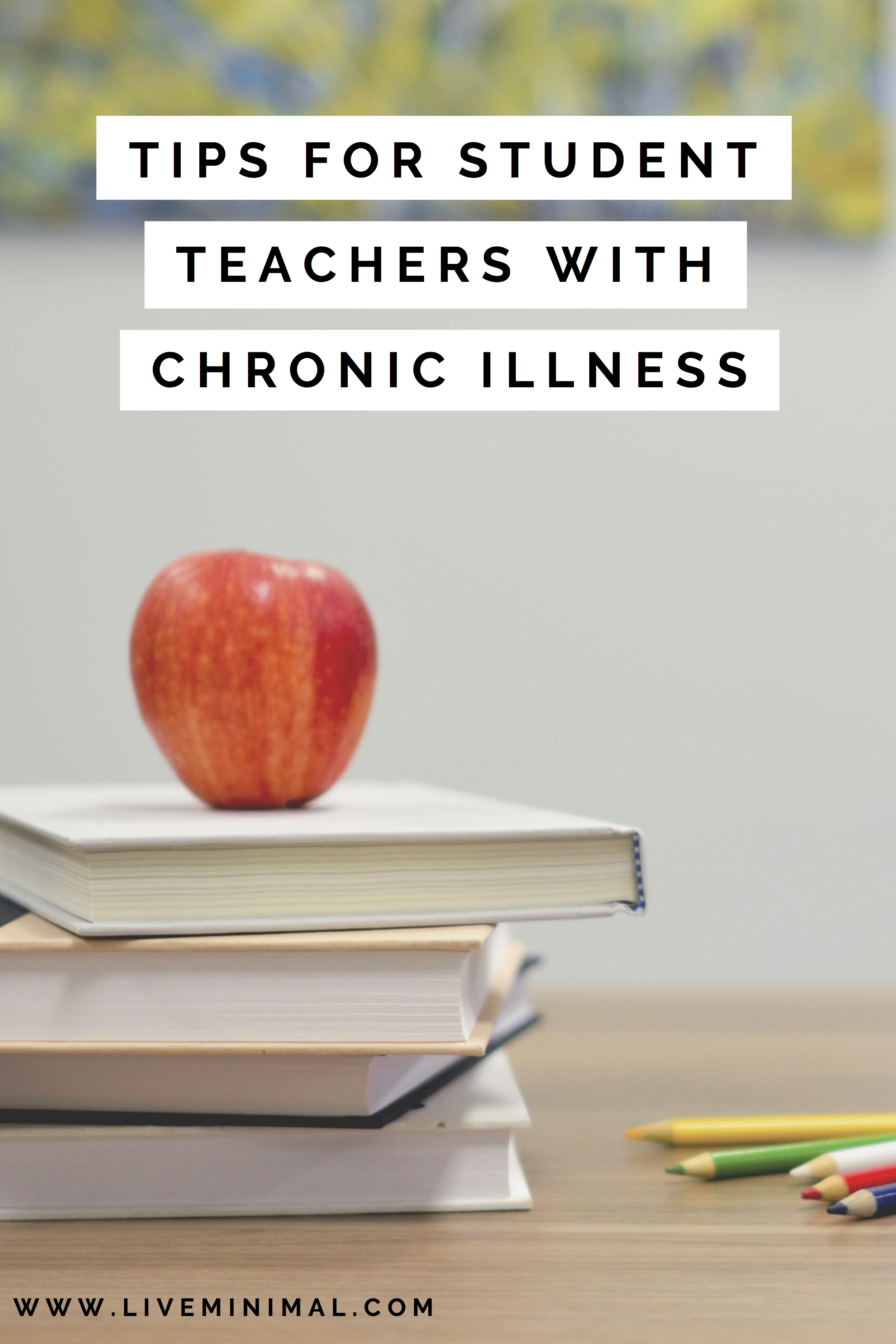The time was fast approaching and I was about to start my 4-week practicum. I was extremely nervous. For the last two years, I had struggled to stand for long periods of time without my heart rate increasing and causing dizziness. I also experienced issues talking due to my thyroid condition. My throat would become hoarse and my voice was strained due to the pressure of a goiter. I really wasn’t sure how I would make it through 4 weeks of teaching.
My cardiologist’s advice was to rethink my career choice. According to him, teaching wasn’t the best option for people with POTs/IST. I chose not to let this advice deter me. He, of course meant well, but I had always wanted to become a teacher and did not want to let my chronic illness get in the way of my long term goals.
Do you have a practicum or internship approaching? Here are a few tips to help you get through it!
1. Plan ahead
Prepare for everything in advance. Research shorter travel routes, organise your bags the night before and prepare for episodes by packing snacks/drinks. You will often have to complete your practicum at the same time as balancing a full-time college workload. Spend adequate time before the practicum to make a list of all your due dates and reading requirements. See if there are any clashes with your practicum and start working on assignments in advance. Don’t fall behind on your college obligations. When you’re not organising lessons or on lunchtime duty, spend lunch breaks catching up on readings.
2. Reach out for help in advance.
Before I was allocated a placement location, I was advised that I would have to travel up to 90 minutes to reach the school. I knew this would be difficult due to dysautonomia (you can read about this here). So, I reached out to the education department and they were able to place me at a school in a nearby suburb. Reducing travel time ensured that I was able to spend my energy wisely – teaching lessons and organising classroom activities instead of arriving exhausted.
3. Establish a good nighttime routine.
A decent sleep isn’t always possible with painsomnia but it’s important to spend at least an hour at the end of your day unwinding and preparing for bed. Practicums can be stressful and this accumulative stress can cause a flare. Try to spend an hour doing something that you enjoy – read a book, draw, write reflectively in a journal – anything that will help you refocus your attention on yourself. Set a specific time for bed each night and try to stick to the routine.
4. Regenerate over the weekend.
As soon as I left on Friday afternoon, I made it a priority to step away from lesson planning until Saturday night. A complete 24 hours to rest and recover both mentally and physically. It might seem like a long break, but if I had spent every moment thinking about my practicum, I would have burnt out quicker.
5. Prepare for the flu.
It’s almost impossible not to get sick when working in a classroom. Take necessary precautions to avoid getting sick – carry hand sanitiser and wipe down your folders/bags with antibacterial wipes. I went through a lot of antibacterial wipes in 4 weeks and unfortunately still caught the flu!
6. Have fun!
I was fortunate enough to be paired with a small group of students from my college. Although I was dealing with symptoms and pain, I tried to interact and laugh with them. Knowing that I could rely on a group of people made the experience more enjoyable. Spending lunch debriefing and sharing experiences, allowed me to grow and adapt my teaching techniques.
7. Wear comfortable clothing.
In most cases, you will spend 8 hours on your feet or kneeling next to desks. If you deal with painful stomach bloating, I recommend wearing pants with elasticated waists and loose-fitting blouses. Appropriate shoes, such as flats/sandals help support your feet and will reduce pain in your legs. If you have Raynaud’s or cannot regulate your body temperature, pack a scarf and gloves as classrooms can often be cold.
Here are a few mistakes that I made during my first practicum.
1. Not asking for help when I was physically struggling.
I wanted the entire experience – lunchtime duty, weekly bush walks, dance, teaching physical education. I did not want to stand out and be labelled as the student with health issues. Because of this, I often pushed myself too far and was left winded and disoriented. At times I felt it was hard to project my voice to the back of the classroom and the energy exerted in doing so, left me with pain in my stomach and lungs. As soon as my lesson was over, I would be shaking and rushed back to my desk to chug down my Powerade. My advice would be to let your supervising teacher know that there are certain things you would like to try but may have issues completing. Accommodations may be offered, such as sitting down during whole class lessons, adequate breaks, and reduced physical education lessons.
2. Rest after your practicum is complete.
As soon as I was done with my practicum, I threw myself back into university and didn’t take a day or two off to rest. By the end of the semester, I was burnt out. To make it worse, after that semester I went straight into Summer school and struggled the entire time. Having a reasonable break will help you in the long run.
I hope these tips are helpful during your next practicum/internship. Having a chronic illness can make the process trickier but don’t let that get in the way of your goals. I want to wish you the best of luck on your placement. Have fun and enjoy the experience!
Have you completed a college practicum/internship? Do you have any tips to get through it with or without a chronic illness? I’d love to hear them in the comments below!






